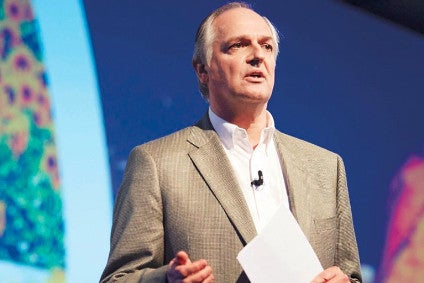
Ahead of the climate talks in Paris, Unilever announced plans to be carbon positive from its operations by 2030. Elsewhere, there was more consolidation in the US food sector, with Pinnacle Foods moving for Boulder Brands. Tyson Foods, Post Holdings and Greencore all had annual results out in the week. Maple Leaf Foods outlined plans to “streamline” its business, which is set to lead to the loss of 400 staff. Here is the week in quotes
“The reality is, if we don’t tackle climate change we won’t achieve economic growth. This is an issue for all businesses, not just Unilever. We all have to act. Runaway climate change could wipe out development gains of the last century in little more than a generation” – Paul Polman, the CEO of Unilever, comments on the company’s goal of being carbon positive from its operations by 2030.

Discover B2B Marketing That Performs
Combine business intelligence and editorial excellence to reach engaged professionals across 36 leading media platforms.
“The acquisition of Boulder Brands further expands our health and wellness portfolio, currently anchored by the Birds Eye and Gardein brands.In addition to being a synergy-rich, accretive transaction with on-trend brands, the acquisition provides us with an important health and wellness talent pool in Boulder, Colorado” – Pinnacle Foods CEO Bob Gamgort on the US$975m acquisition of fellow US food group Boulder Brands.
“I’m very conscious many commentators in our industry are fixated right now on the level and change and challenge in the UK grocery market and the implications that’s had on the leadership, business model and for the way of considering supply chain. The danger of that is you can lose sight of some of the structural, positive long term trends that underpin portions of the market in which we operate – namely convenience foods” – Greencore CEO Patrick Coveney comments following the firm’s full year results announcement and commits to a further focus on “food-to-go” for 2016.
“We have to offer our products where the consumers are going to shop. I think in five or ten years we won’t be talking about discount and non-discount, we are just talking about shops. Some shops have a variety of 500 products, others 5,000. The consumer will decide [where to shop]. We have to make sure that our product is available for the consumer. I see us in the discount. I see trends going a little bit more upscale – also in their shops. And we have to make sure we are available where the consumer wants us” – Andreas Ronken, chairman of German chocolate firm Alfred Ritter, says while a lot of its larger customers are finding themselves squeezed by discount retailers such as Aldi and Lidl, Ritter is finding ways to work with the discount sector.
“As we complete our network transformation, we are now able to address the additional resources that managing years of change required and place greater rigour on building a cost culture. Our goal is to minimise the cost of running the business so we can focus our investments and future job creation on growing the business” – Maple Leaf Foods announces it is cutting more than 400 jobs as it works to “streamline” its business.

US Tariffs are shifting - will you react or anticipate?
Don’t let policy changes catch you off guard. Stay proactive with real-time data and expert analysis.
By GlobalData“We continue to navigate the reverberations of avian influenza. That event echoes through our business practices around bio security, our relationships with customers and our overall approach to risk management. It would be foolish to conclude this risk has contained, rather we have a better understanding of it and have developed a thorough approach to mitigate the effects of any future outbreaks. I am very proud of our team’s response to this crisis and I believe we are in a better competitive position than we were prior to AI” – Post Holdings CEO Rob Vitale insists the company’s egg business, Michael Foods, is better positioned following the outbreak of bird flu earlier this year.
“Within food solutions the premium segment should continue to do well, while the other 25%, namely gas stations and independent retailers continue to shrink. In order to improve this segment Aryzta will focus more on the specialist business… Aryzta will increase new investment in marketing and management, is focusing on the premium segment, is adding new volume to replace lost volume, and is restoring margin expansion” – MainFirst analyst Alain Oberhuber offers his thoughts on why Aryzta is replacing its departing Europe CEO with two execs that will each manage the food solutions arm and the bakeries arm.
“This is an exciting acquisition for us as it allows us to extend our product range for customers and consumers even further, with the addition of cottage cheese and quark. In addition, this deal presents great potential to explore further new product development” – Robert Graham, MD for Graham’s The Family Dairy, comments after the firm announces it is acquiring Glenfield Dairy from First Milk.
“Danish Crown faces exactly the same challenges as other slaughterhouse and meat processing companies throughout Europe. This is having a significant impact on our owners, and so our delight that Danish Crown is managing better than its European competitors in a very difficult market is slightly muted” – Erik Bredholt, chairman of Danish Crown’s board of directors, says despite a full year profit rise, Danish Crown is still navigating the challenge in Europe of a pork surplus that is impacting prices.
“Fiscal 2015 was an important year for Tyson Foods, because it proved that our house of brands gives us the ability to produce record sales and earnings in less than optimum conditions, all while successfully merging two large companies” – Tyson Foods president and CEO Donnie Smith on the firm’s full year results which showed a rise in net profit and higher sales.





